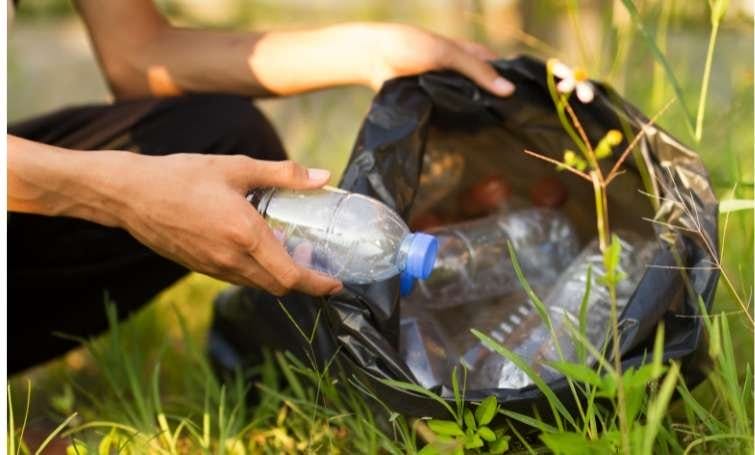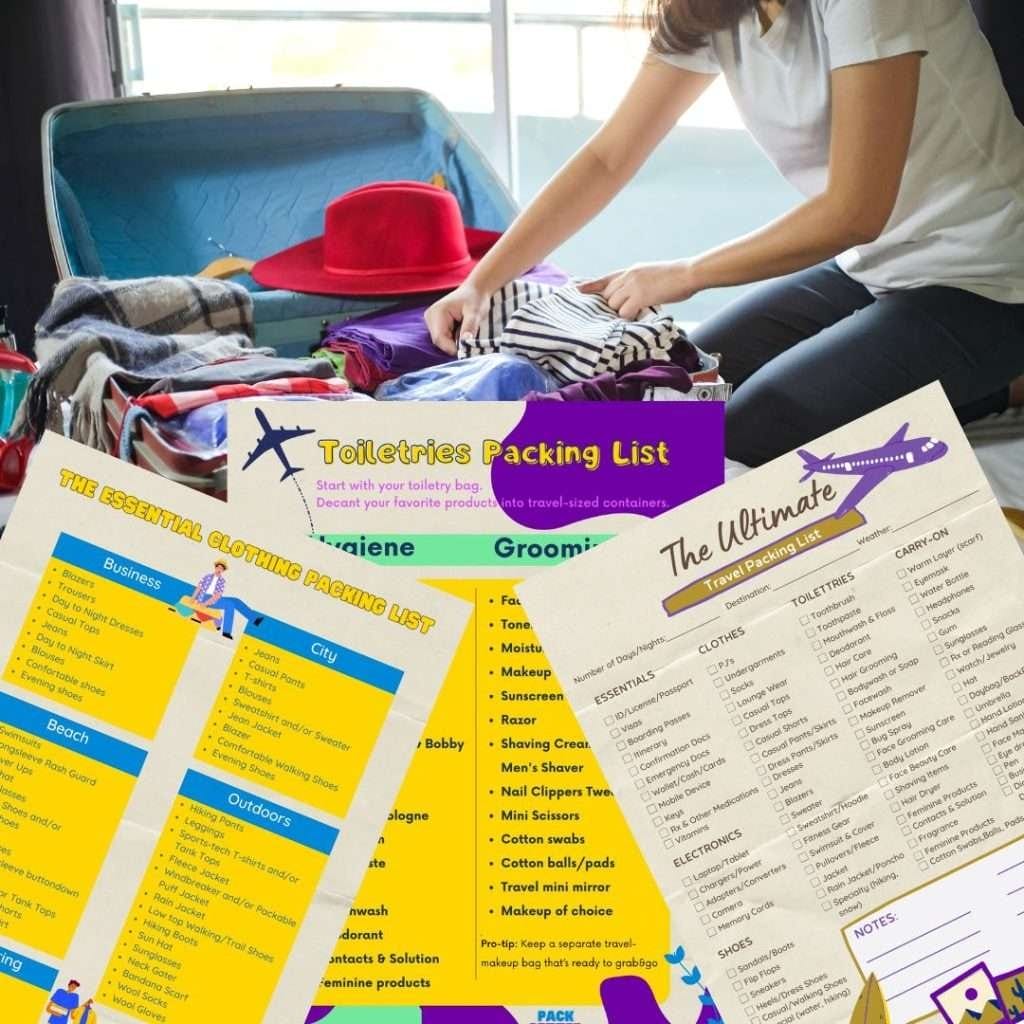
 Traveling leaves a mark on the planet, but what if you could reduce that impact? Every year, travelers produce significant waste, contributing to the global trash problem. This guide shows you zero-waste travel tips so you leave footprints only.
Traveling leaves a mark on the planet, but what if you could reduce that impact? Every year, travelers produce significant waste, contributing to the global trash problem. This guide shows you zero-waste travel tips so you leave footprints only.Key Takeaways
- Pack reusable items and reduce waste during travel.
- Choose sustainable transportation methods to lower your carbon footprint while exploring new places.
- Opt for digital tickets and check-ins whenever possible to reduce paper waste.
- Engage in local clean-up efforts and choose experiences over physical souvenirs.
- Plan by selecting eco-conscious accommodations.
Understanding Zero-Waste Travel Resources
Zero waste travel resources transform how we explore the world, striving to leave no trace and minimize our environmental footprint. It’s a commitment to avoiding single-use plastics, reducing waste wherever possible, and making careful choices about what we pack, eat, and purchase on the go.
This approach goes beyond recycling. It includes planning for sustainable transportation like public transport or ridesharing and choosing eco-friendly accommodations.

Travelers with reusable water bottles, battery-powered devices, and a sustainable mindset can reduce plastic pollution. Refill your bottle at safe water sources instead of buying new ones. Charge gadgets with renewable energy when available, and always choose digital tickets over paper ones.
Your responsible choices drive demand for greener services in tourism, compelling travel industries worldwide to adopt more environmentally friendly policies—a victory far beyond one person’s journey.
How to Plan and Book for Zero Waste Travel
Plan your trip with zero waste to start a more sustainable adventure. Booking decisions have a significant impact on your environmental footprint.
- Choose electronic tickets whenever you can to reduce paper waste. E-tickets are commonly accepted and can be easily stored on your mobile device.
- Seek eco-friendly accommodations; choose hotels or hostels with green certifications, solar power, or strong recycling programs.
- Seek out airlines that offer carbon offset programs. These programs allow you to counterbalance your flight’s emissions by investing in renewable energy projects.
- Think about using trains when possible. Trains usually produce less carbon than planes and let you see more of the country you visit.
- Certain destinations are known for their eco-tourism infrastructure, which often provides resources to help visitors maintain a low-waste lifestyle while exploring.
- Use sharing economy services like Airbnb. Choose places that promote recycling and save energy.
- Choose restaurants beforehand that are known for farm-to-table meals, minimal food waste, and a no single-use plastics policy.
- Connect with travel agencies that focus on sustainable tourism. They will guide your responsible choices.
Zero Waste Travel Products
Traveling sustainably is now simpler, with many zero-waste products that reduce your environmental impact. Here are some essential items to consider for your next trip.
Reusable Items
- Water Bottles: Reusable water bottles are a must-have for any zero waste traveler. They help reduce plastic waste and keep you hydrated on the go. Consider options that are durable and made from recycled materials, and support environmental initiatives.
- Straws and Utensils: Using reusable straws and utensils greatly reduces single-use plastic waste. These items are available in various eco-friendly materials.
- Tote Bags and Backpacks: Choose sustainable tote bags and backpacks made from recycled or organic materials. These bags are perfect for carrying your essentials while minimizing your environmental footprint.
Toiletries and Personal Care
- Solid Toiletries: Solid toiletries like shampoo and conditioner bars help effectively reduce plastic waste. They are also convenient for travel because they take up less space and do not spill.
- Eco-Friendly Sunscreen: Protect your skin and the environment by choosing reef-safe sunscreens. These sunscreens use physical filters like zinc oxide and titanium dioxide. These ingredients are less harmful to marine life.
- Biodegradable Toothbrushes: Switching to biodegradable toothbrushes made from bamboo or biodegradable plastics reduces plastic waste in landfills.
Clothing and Accessories
- Sustainable Clothing Brands: Buying clothes from sustainable brands makes your travel wardrobe stylish and eco-friendly. These brands often use organic or recycled materials and ethical manufacturing practices.
- Eco-Friendly Swimwear: Manufacturers make eco-friendly swimwear from recycled materials, like discarded fishing nets, and design it to last longer, which reduces the need for frequent replacements.
- Reusable Period Products: Reusable period products, like menstrual cups and reusable pads, help the environment. They also save money over time.
Packing Tips for Zero Waste Travel
Traveling sustainably involves making conscious choices about what and how you pack. Here are some tips to help you pack lightly, efficiently, and with minimal waste.

Prioritize Versatile Clothing
Packing versatile clothing is key to a zero-waste travel experience. Choose items that can be mixed, matched, and layered to create multiple outfits. This reduces the amount of clothing you need to bring. It also ensures you are prepared for various weather conditions.
Pack items with multiple purposes, like a scarf that can also be a blanket. Add or remove lightweight layers as temperatures change. For example, you can layer a light top or sweater with another thin knit for extra warmth. Stick to a cohesive color scheme to maximize outfit combinations. Neutral colors and simple patterns work well for mixing and matching.
Eco-Friendly Packing Cubes
Using eco-friendly packing cubes keeps your luggage organized and reduces your environmental impact. Look for packing cubes made from recycled materials.
Packing cubes compress your clothes, so you can fit more in your luggage and stay organized. Choose packing cubes made from recycled plastic or other sustainable materials.

Say goodbye to packing stress and hello to hassle-free travel
Never Forget a Travel Essential Again!
Subscribe now and unlock our exclusive Travel Downloads Library. Gain access to our lists and guides that can help for every type of trip!
Preparing for Your Trip
Before setting off on your eco-conscious travel, intentional preparation is key to zero waste travel success. Choosing eco-friendly gear and packing versatile items can greatly reduce your environmental impact.
Second-Hand Travel Gear
Explore thrift stores and online marketplaces for second-hand travel gear to prepare for your journey. Embrace this eco-friendly treasure hunt. Find a gently used backpack or pre-loved tent to slash costs and reduce manufacturing demand.
Benefits:
- Reusing items keeps them out of the waste stream and reduces your carbon footprint.
- Outfitting your adventure with previously owned items supports a circular economy.
- Examples of second-hand gear include camping cookware and sturdy hiking boots.
Aim to equip your adventure with second-hand items that are still in good condition. Buying second-hand gear supports a circular economy and aligns with the zero-waste approach. This ensures you explore our planet while treading lightly.
Choose Your Mode of Transportation
Your choice of transportation can have a big impact on the environment, so it pays to pick wisely. Go for public transit whenever you can—it’s one of the most sustainable ways to get around! Buses, trains, and subways are better for our planet.
They let you skip the hassle of parking and navigating unfamiliar roads. It’s an excellent opportunity to mingle with locals and immerse yourself in the culture.
If public transport isn’t an option or doesn’t suit your needs, consider ridesharing or renting a hybrid or electric vehicle. Sharing rides lowers CO2 emissions and could lead to interesting conversations and new friendships.
Before you fly, spend some time researching airlines that are committed to sustainability practices. If you must fly for international trips or long distances, consider offsetting your carbon footprint through reputable programs like Atmosfair.
Reduce Waste Before Transit
Reducing waste before transit is pivotal in lessening your environmental footprint while moving. Discover impactful strategies to travel lighter and cleaner, ensuring that your journey contributes positively towards a more sustainable planet.
Swap out paper tickets and receipts for their electronic counterparts, slicing through the clutter while preserving trees.
- Book Online: Secure eco-friendly accommodations and experiences without the burden of a paper trail.
- E-Tickets: Embrace e-tickets for public transport and events; they’re a tap away on your smartphone, ready to whisk you off without leaving a scrap behind.
- Digital Payments: Use digital payment methods wherever possible. This change reduces waste and adds convenience to every transaction. You can book flights or order meals at local eateries that support sustainable practices.
Bring Your Snacks
Packing your snacks is a game-changer for waste reduction during your travels. It’s simple: choose reusable containers and fill them with your favorite treats before you leave home.
- Avoid Single-Use Plastics: By packing your snacks, you can avoid the trap of convenience store packaging and unnecessary single-use plastics, which sadly end up littering our beautiful destinations.
- Healthier Options: Carry fruits, nuts, or homemade sandwiches. These options are not just healthier but also kinder to the planet.
- Zero-Waste Principle: This aligns perfectly with the zero-waste principle of refusing what you do not need and reducing reliance on items designed for a quick toss.
Zero Waste Practices at Your Destination

Once you arrive, embracing zero waste practices becomes a seamless part of your adventure, enhancing both your experience and the environment—discover how in the full guide.
Laundry Options On The Road
Keeping your clothes clean while traveling can be a challenge, but with the right strategy, it’s manageable. If you’re staying at hostels or hotels, check for on-site laundry facilities—many offer washers and dryers for guests to use.
This approach not only helps you pack lighter by re-wearing garments but also perfectly aligns with zero-waste goals. Doing laundry during your stay reduces the need for excess clothing and cuts down on luggage weight.
Travelers who prefer getting off the beaten path might be far from traditional laundry services. Fear not! Portable washing tools like scrub bags are lightweight and easy to carry in your backpack.
They let you wash clothes anywhere there’s water available—a perfect solution for those long camping trips or remote adventures. Using biodegradable soap reduces environmental impact. This way, you leave no trace behind except good memories of beautiful nature.
Rechargeable & Eco-Friendly Electronics
Pack your bags with rechargeable electronics to significantly reduce waste while traveling. Traditional single-use batteries often end up in landfills, but you contribute to a cleaner environment by opting for rechargeable options.
Think of all the gadgets accompanying you on a trip – cameras, flashlights, and even portable chargers. Choosing their rechargeable counterparts not only saves you money over time but also aligns with sustainable travel practices.
Invest in eco-friendly electronics and embrace low-waste camping tips like using solar-powered devices or hand-crank radios. These alternatives not only reduce your carbon footprint but also let you charge them anywhere under the sun—literally.
Reliable gear that reduces environmental impact is smart and responsible tourism at airports or campsites. Bring these eco-friendly options to help protect destinations for future visitors and the planet.
The R’s of Zero Waste
Embracing zero waste travel transforms the way you explore the world. It’s a commitment to protect the environment every step of your journey.
- Refuse single-use products that contribute to waste, like plastic straws and disposable water bottles. Instead, carry a stainless steel straw and a reusable water bottle.
- Pack only the essentials to reduce the amount of luggage you bring. Aim for multi-functional clothing and gear that suits various situations.
- Reuse items whenever possible to extend their life and value. Choose a canvas tote bag for groceries rather than taking plastic bags at checkout.
- When traveling internationally or domestically, recycle materials according to local guidelines. Look for proper disposal bins for plastics, glass, and paper.
Final Thoughts
Zero-waste travel is more than just a trend; it’s a conscious decision to prioritize the well-being of our planet. By adopting these tips and utilizing the resources available, you can embark on both fulfilling and environmentally responsible journeys.
Small changes, like opting for reusable items and supporting sustainable brands, can significantly impact the environment. Your commitment to eco-friendly travel helps protect the planet’s natural beauty for future generations.

Responsible Travel 101
Looking for a comprehensive understanding of this topic? Our white paper is meant to answer your top questions on this subject.
FAQ
1. Is zero waste travel realistic?
Absolutely! While achieving a completely zero-waste trip might be challenging, striving for minimal waste is achievable. You can significantly reduce your impact by adopting simple practices like carrying reusable essentials, choosing eco-friendly accommodations, and supporting local businesses.
2. What are some essential zero-waste travel items?
Key items include a reusable water bottle, bamboo or metal cutlery, a cloth napkin, a reusable coffee cup, solid toiletries (shampoo, conditioner, soap), and a reusable shopping bag. These simple swaps can eliminate a significant amount of single-use waste.
3. How can I reduce waste when flying?
Bring your own snacks in reusable containers, carry a reusable water bottle and fill it after security, decline single-use plastic cups and utensils offered on the flight, and pack light to reduce fuel consumption.
What if I can’t find zero-waste options at my destination?
Do your best to minimize waste by choosing options with minimal packaging, supporting local businesses that prioritize sustainability, and properly disposing of any unavoidable waste. Remember, progress over perfection is key.
5. How can I make my travel experiences more sustainable overall?
Opt for eco-friendly transportation like trains or buses whenever possible. Choose accommodations that prioritize sustainability, engage in responsible tourism activities, and support local communities. Remember, every effort counts towards creating a more sustainable travel industry.

